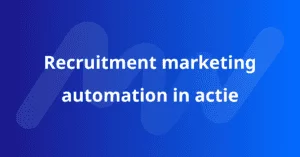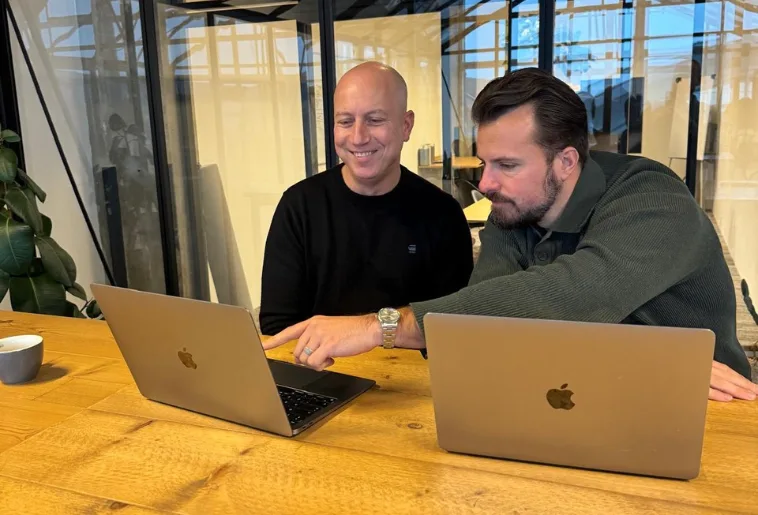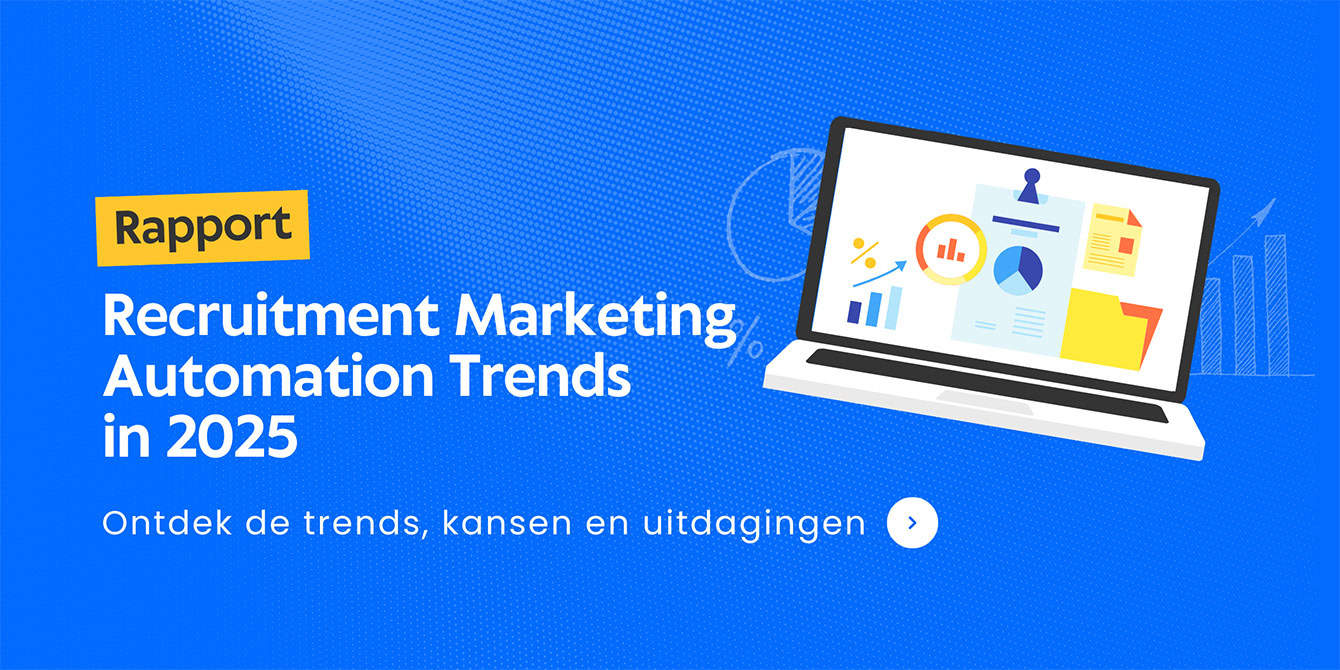Mees van Velzen founded MrWork eleven years ago out of his own frustration with the job application process. "Long-winded and one-sided," he called it. "Job applicants mainly had to sell themselves, while often knowing little about a company's mission, vision and values. The application process could be much more equal, Mees thought. "Turn it around, the company actually applies just as much to the candidate!"
Mees started MrWork with the idea of improving the job application process for both recruiters and candidates. Despite the economic crisis at the time and initial resistance from companies, he built a system that automatically shared job postings in LinkedIn groups. This made MrWork the first in the Netherlands to reach latent job seekers, which gained a lot of traction. MrWork evolved from a so-called "multipost system" to a media agency with extensive knowledge of online marketing for recruitment. In 2019, the company made a crucial transformation into a technology company, focused on marketing automation, to achieve its original mission of a more equal job application process.
How did you make sure to set up such a more equal application process?
"With the move to technology in 2019, we have really realized our original idea. We now offer companies the opportunity to get to know candidates in an approachable way. Candidates no longer have to go through a traditional application process; they can ask questions via the website and receive automated answers via WhatsApp. This removes talent from anonymity and provides a better experience for both recruiters and candidates.
Companies can use our technology to reactivate old applicants in their ATS system via email, WhatsApp and SMS. Alumni who have left can be re-approached, allowing companies to keep various talent pools warm. Recruiters end up getting qualified candidates they initially speak to via WhatsApp. This leads to faster and more effective matching."
"Traditional job application is often a slow process with low conversion. Only 1% of visitors to a 'working at' page actually apply. Our technology removes the other 99% from anonymity, which significantly increases conversion rates."
What is MrWork's overarching vision for the future of recruitment and how do you see the role of marketing automation changing in it?
"With a tight labor market, partly due to an aging population, we strive to make companies less dependent on expensive ad hoc recruitment. Our mission is to bring time to hire to zero by always having a pool of interested candidates ready for any position. This allows companies to operate much more efficiently and find the right people faster.
Marketing automation plays a crucial role in this vision. Through automated processes, companies can better utilize their current talent pools and effectively reach potential candidates without relying on traditional recruiting methods. This ensures a continuous flow of potential candidates available at any time."
Can you share a best practice regarding recruiters getting started with automated marketing campaigns to attract talent?
"A good example is a large logistics company looking for drivers. Previously, drivers had to write a cover letter and upload a resume, which was often a stumbling block for drivers because some didn't have a resume. By simplifying the process with a WhatsApp popup on their website, the conversion rate increased from 1% to 10%. Drivers can now easily apply via WhatsApp, which significantly lowers the barrier. We see that this is a much more enjoyable process for both practical and higher-ups."
How is the way recruiters generate leads changing with the automation MrWork provides, and what makes this process more effective than traditional methods?
"Traditional advertising targets active job seekers. With our technology, recruiters can now reach latent job seekers and make the application process approachable, leading more people to come forward. This changes the role of recruiters, who can now spend more time convincing candidates instead of just scanning resumes.
Automation allows for faster follow-up on leads, which is crucial in today's job market. By automating initial contacts, recruiters can focus on valuable interactions with qualified candidates, significantly increasing the efficiency and effectiveness of the recruiting process."
How far do you think automation can go within recruitment without losing the personal aspect of recruitment? What aspects do you consciously leave to recruiters?
"The personal aspect remains essential. Candidates want quick personal contact to get an idea of the culture within a company. Automation can help in qualifying candidates, but once there is a relevant candidate there should be personal contact as soon as possible. This remains the job of the recruiter.
So automation is especially ideal for handling repetitive tasks and initializing contacts, but the personal conversation is indispensable for assessing cultural fit and building a strong relationship with the candidate. Finding the right balance between automation and personal interaction is the key to successful recruitment, in my opinion."
What do you see as the most significant shifts in the way recruiters work in the next 5 to 10 years?
"AI is going to play a bigger role in recruitment. The application process and candidate qualification will be largely automated. Recruiters will become more salespeople of employment contracts because they have to convince candidates. The productivity of recruiters will increase tremendously due to technological developments and marketing automation, ultimately leading to faster and more effective recruitment.
Recruiters have more time for strategic tasks and relationship building because of AI. The focus shifts from administrative work to persuading and retaining talent. This creates a more dynamic and effective approach to recruitment, where technology and human interaction go hand in hand."








